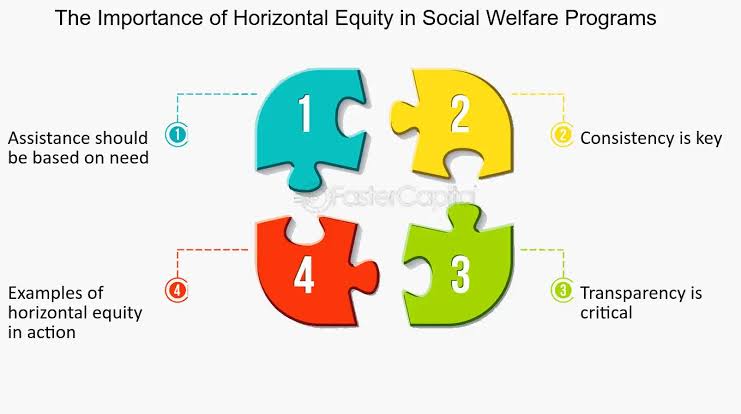Budget 2024 is poised to be a pivotal moment for India’s economic trajectory. As the government rolls out its financial blueprint, the focus is firmly on fostering sustainable growth while navigating the challenges of an uncertain global economic environment. This comprehensive analysis explores the bold measures proposed in Budget 2024, the potential benefits, and the critical challenges that lie ahead.
Introduction
Budget 2024 arrives at a crucial juncture for India, marked by a global economic slowdown, rising inflation, and the pressing need for sustainable development. The government’s fiscal strategy is aimed at balancing economic growth with environmental sustainability, addressing social inequalities, and boosting infrastructure. This analysis delves into the key aspects of the budget, assessing its impact on various sectors and stakeholders.
Aims and Objectives of Budget 2024
The primary objectives of Budget 2024 can be categorized into several key areas:
- Sustainable Growth: Emphasizing green initiatives and renewable energy to ensure long-term ecological balance.
- Economic Stability: Strengthening macroeconomic fundamentals to mitigate risks from global uncertainties.
- Social Equity: Enhancing social welfare schemes to reduce inequalities and uplift marginalized communities.
- Infrastructure Development: Investing in robust infrastructure to facilitate economic activities and create jobs.
- Innovation and Digitalization: Promoting technological advancements and digital economy to future-proof the nation.
Positive Aspects of Budget 2024
Green Economy Initiatives
Budget 2024 has placed a significant emphasis on transitioning towards a green economy. The allocation of funds towards renewable energy projects, sustainable agriculture, and pollution control measures is a testament to the government’s commitment to environmental sustainability.
- Renewable Energy: Substantial investments have been earmarked for solar, wind, and hydroelectric projects, aiming to increase the share of renewable energy in the national grid.
- Sustainable Agriculture: Initiatives to promote organic farming, reduce chemical fertilizers, and enhance water conservation are expected to make agriculture more sustainable.
- Pollution Control: Measures to curb industrial pollution and promote cleaner technologies are integral to the budget’s environmental agenda.
Economic Stimulus and Job Creation
In response to the economic slowdown, Budget 2024 includes several stimulus measures designed to spur economic activities and generate employment.
- Infrastructure Projects: Increased funding for infrastructure projects, including roads, railways, and ports, is expected to create jobs and stimulate economic growth.
- MSME Support: Financial assistance and incentives for micro, small, and medium enterprises (MSMEs) aim to boost this crucial sector and enhance its contribution to the economy.
- Skill Development: Programs focused on skill development and vocational training are intended to equip the workforce with the necessary skills for emerging industries.
Social Welfare and Equity
Addressing social inequalities is a cornerstone of Budget 2024, with enhanced allocations for various social welfare schemes.
-
- Healthcare: Increased funding for healthcare infrastructure, particularly in rural areas, aims to improve access to medical services and reduce health disparities.
- Education: Investments in education, particularly in digital learning and infrastructure, are expected to enhance the quality of education and make it more accessible.
- Women and Child Development: Specific schemes targeting the welfare of women and children are designed to promote gender equality and support vulnerable sections of society.

Technological Advancements and Digitalization
Recognizing the importance of technology in driving future growth, Budget 2024 emphasizes innovation and digital transformation.
Digital Infrastructure: Investments in digital infrastructure, including broadband connectivity and data centers, aim to support the digital economy.
R&D Incentives: Incentives for research and development are expected to foster innovation and position India as a global technology hub.
Start-up Ecosystem: Support for start-ups, including tax incentives and funding, is aimed at nurturing entrepreneurship and innovation.
Negative Aspects and Challenges of Budget 2024
-
Fiscal Deficit Concerns
One of the major concerns surrounding Budget 2024 is the potential increase in the fiscal deficit. While the budget includes several ambitious spending plans, managing the fiscal deficit remains a challenge.
- Revenue Shortfalls: The reliance on increased borrowing to finance expenditure could lead to higher debt levels and potential credit rating downgrades.
- Inflationary Pressures: Increased government spending could exacerbate inflationary pressures, particularly if supply-side constraints persist.
-
Implementation Challenges
Effective implementation of the budgetary provisions is crucial for realizing the intended benefits. However, several implementation challenges could hinder progress.
- Bureaucratic Hurdles: Delays and inefficiencies in the bureaucratic process could impede the timely execution of projects and schemes.
- Corruption and Leakages: Corruption and leakages in the system could undermine the effectiveness of social welfare schemes and public spending.
- State-Level Coordination: Ensuring coordination between the central and state governments is essential for the successful implementation of many initiatives.
-
Global Economic Uncertainties
The global economic environment remains uncertain, with risks such as geopolitical tensions, supply chain disruptions, and fluctuating commodity prices posing challenges.
- Export Markets: Sluggish demand in key export markets could impact India’s export-oriented industries, affecting overall economic growth.
- Commodity Prices: Volatility in commodity prices, particularly crude oil, could have adverse implications for the fiscal balance and inflation.

-
Environmental Sustainability
While the budget’s focus on green initiatives is commendable, ensuring environmental sustainability requires sustained efforts and commitment.
- Long-Term Commitment: Achieving environmental sustainability goals requires a long-term commitment beyond budgetary allocations. Consistent policy support and public-private partnerships are crucial.
- Balancing Growth and Sustainability: Striking a balance between economic growth and environmental sustainability is challenging, particularly in sectors such as manufacturing and mining.
Sectoral Impact of Budget 2024
-
Agriculture and Rural Development
Budget 2024 has made significant provisions for agriculture and rural development, recognizing the sector’s importance to the economy and livelihoods.
- Farmers’ Welfare: Increased funding for schemes such as the Pradhan Mantri Kisan Samman Nidhi (PM-KISAN) aims to support farmers’ income and promote agricultural productivity.
- Rural Infrastructure: Investments in rural infrastructure, including roads, irrigation, and electrification, are expected to improve living standards and economic opportunities in rural areas.
- Agri-Tech Innovations: Encouraging the adoption of agri-tech innovations and digital solutions aims to modernize agriculture and enhance efficiency.
-
Industry and Manufacturing
The budget’s focus on infrastructure development and MSME support is expected to benefit the industrial and manufacturing sectors.
- Infrastructure Projects: Increased funding for infrastructure projects is expected to boost demand for industrial goods and services.
- MSME Incentives: Financial assistance and incentives for MSMEs aim to enhance their competitiveness and contribution to the manufacturing sector.
- Industrial Policies: Policies promoting industrial growth, including incentives for investment and innovation, are expected to attract both domestic and foreign investments.
-
Healthcare and Education
Recognizing the importance of human capital, Budget 2024 has made significant allocations for healthcare and education.
- Healthcare Infrastructure: Investments in healthcare infrastructure, particularly in underserved areas, aim to improve access to medical services and enhance health outcomes.
- Digital Education: Emphasis on digital education and infrastructure aims to bridge the education gap and promote inclusive learning.
- Research and Development: Increased funding for research and development in healthcare and education aims to foster innovation and improve quality.

4.) Energy and Environment
The budget’s emphasis on renewable energy and environmental sustainability is expected to have far-reaching implications for the energy sector.
-
- Renewable Energy Projects: Substantial investments in renewable energy projects aim to increase the share of clean energy in the national grid and reduce carbon emissions.
- Energy Efficiency: Initiatives to promote energy efficiency and conservation are expected to reduce energy consumption and environmental impact.
- Climate Resilience: Investments in climate resilience and adaptation measures aim to mitigate the adverse effects of climate change and enhance sustainability.
Additional Measures and Innovations
-
Urban Development and Smart Cities
The budget outlines significant investments in urban development and smart city initiatives aimed at improving the quality of life in urban areas.
- Smart City Projects: Funding for smart city projects aims to enhance urban infrastructure, improve public services, and promote sustainable urban living.
- Affordable Housing: Increased allocations for affordable housing schemes are expected to address the housing shortage and promote home ownership.
- Public Transportation: Investments in public transportation infrastructure, including metro rail and bus rapid transit systems, aim to reduce urban congestion and promote sustainable mobility.
-
Tourism and Hospitality
Recognizing the potential of tourism as a major economic driver, Budget 2024 includes measures to boost the tourism and hospitality sector.
- Tourism Infrastructure: Investments in tourism infrastructure, including heritage conservation and development of tourist destinations, aim to attract more tourists and boost local economies.
- Hospitality Industry Support: Financial incentives and support for the hospitality industry are expected to promote the growth of hotels, restaurants, and related services.
- Cultural Promotion: Initiatives to promote India’s rich cultural heritage and diversity aim to enhance the country’s appeal as a tourist destination.
-
Financial Sector Reforms
Budget 2024 includes several reforms aimed at strengthening the financial sector and enhancing its contribution to economic growth.
- Banking Sector Reforms: Measures to improve the health and efficiency of the banking sector, including recap
Conclusion
Budget 2024 sets the stage for sustainable growth amidst economic uncertainty by taking bold steps towards environmental sustainability, economic stability, social equity, and technological advancement. While the budget includes several ambitious measures with the potential for significant positive impacts, it also faces critical challenges, including fiscal deficit concerns, implementation hurdles, and global economic uncertainties.
The success of Budget 2024 will depend on effective implementation, sustained policy support, and the ability to navigate the complex interplay of domestic and global factors. By addressing these challenges and leveraging the opportunities, India can pave the way for a more sustainable, equitable, and prosperous future.
As the nation embarks on this transformative journey, the bold steps outlined in Budget 2024 provide a roadmap for achieving sustainable growth and economic resilience. The budget’s emphasis on green initiatives, economic stimulus, social welfare, and technological advancements reflects a forward-looking vision that aims to balance growth with sustainability and inclusivity.
While the path ahead is fraught with challenges, the commitment to sustainable development and the proactive measures proposed in Budget 2024 offer a promising foundation for building a resilient and thriving economy.
For more information visit:
You may also like:
Budget 2024 Expectations for Consumers in India: Salaried, Senior Citizens, and Women
Union Budget 2024 Breakthrough: Transformative Policies for India’s Future


[…] Budget 2024: Bold Steps Towards Sustainable Growth Amidst Economic Uncertainty – FINANCE WRITE… […]